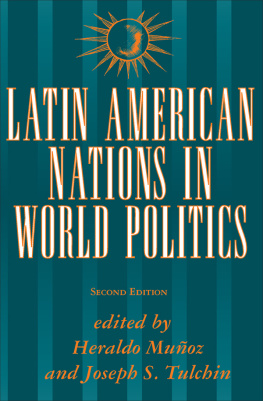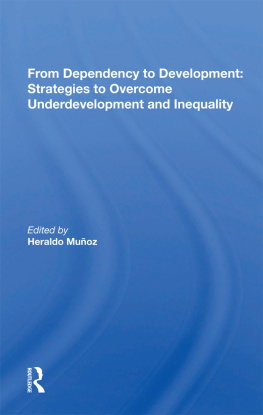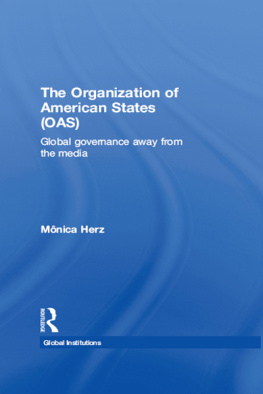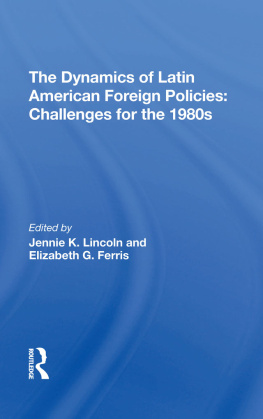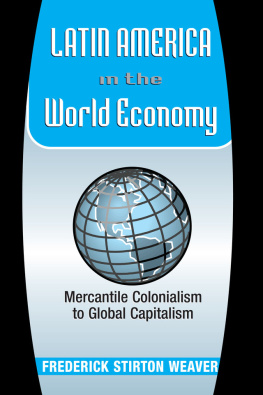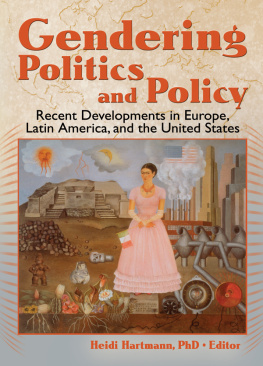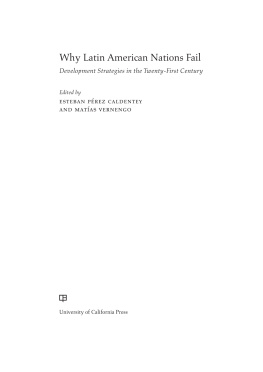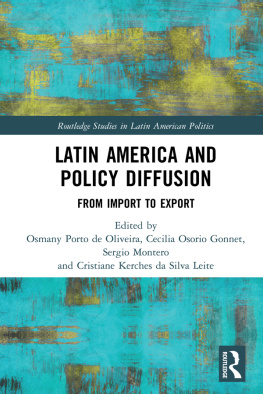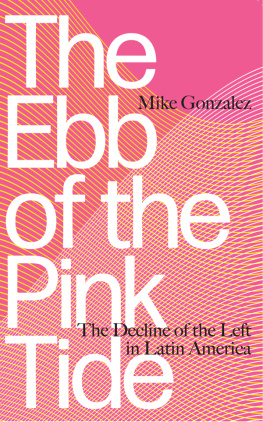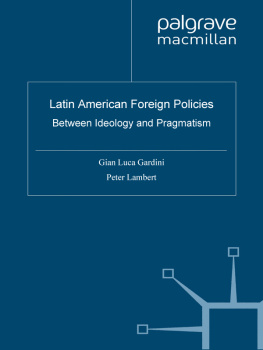The profound world changes brought about by the end of the cold war inaugurated a new period in foreign affairs, modifying the traditional post-World War II concerns of both developed and developing countries. The growing globalization of economic affairs, the decline of world strategic confrontation, the reemergence of national and ethnic rivalries and conflicts, and the eruption of humanitarian crisesmasses of refugees, drought, starvation, and epidemic disease in vulnerable populationsare but some of the characteristics of a complex international situation in which tendencies toward integration and cooperation and tendencies that foster fragmentation coexist. Moreover, the end of the cold war and the transformations in the world economy have led to a rethinking of international relations, including academic research on Latin American foreign affairs.
These world changes have had an important impact upon Latin American foreign relations. Some concrete issues have disappeared, while others only have been reoriented. In the new postcold war scenario, for example, the salience of conventional security issues has tended to decline, and economics, particularly trade, has moved much closer to the top of the Latin American and global agenda. The United States continues to be a key factor in Latin American foreign relations, although arguably less so than in the immediately postWorld War II era. The following brief analysis of the evolution of the dominant themes in Latin American foreign relations reflects the importance of the end of the cold war as a major historical rupture that is still reshaping the premises and priorities prevailing for the past four decades.
Background Notes
International studies as a social science field is relatively new to Latin America. Even though, exceptionally, pioneering institutions such as the Instituto de Estudios Internacionales of the Universidad de Chile and its journal Estudios Internacionales and the Colegio de Mxico and its publication Foro Internacional date back to the mid-1960s, only well into the 1970s did Latin America witness a rapid growth of centers, publications, and research projects on international affairs. The development of this field has been extremely uneven in terms of overall quality, geographic focus, methodological rigor, and thematic orientations. Latin American foreign relations, although of increasing interest to specialists and the general public, were for a long time noticeably understudied.
Before World War II the principal line of research on Latin Americas external relations was largely restricted to problems of international law, issues in the diplomatic history of particular countries, and general descriptions of the historical linkages between Latin America as a whole and the United States or Europe. In the postwar context, international studies emerged in the United States as an integral part of political science. In Latin America, however, the field remained heavily influenced by a juridical perspective. Eventually, international studies in the region began to be recognized as an autonomous academic field, beyond the scope of political science, in which various disciplines converged.
Beginning in the mid-1970s, the study of Latin Americas foreign relations experienced a substantial advance. Active and participatory foreign policies were by then no longer the exclusive preserve of highly developed nations. Instead, middle-sized and small countries also asserted their own positions and even influence with respect to neighboring countries and powers within or outside the region. For example, after the collapse of the Portuguese colonial empire during the 1970s, Brazil developed a strong diplomatic drive toward Africa while at the same time improving relations with oil-producing Arab countries and becoming more active in Latin American affairs. On the other end of the spectrum, a smaller country such as Ecuador also became more active internationally as it engaged in a protracted fishing-boat dispute with the United States and joined the Organization of Petroleum Exporting Countries (OPEC). Venezuela, in turn, had active policies not only in OPEC but also in a global context, promoting a North-South dialogue for a new world economic order.
Both cooperation and conflict became more plausible as Latin American countries sought to define and advance their national interests within the hemisphere and even beyond it. The war between Argentina and Great Britain over the Malvinas Islands, the Central American conflict, and the debt crisis, among other situations of the late 1970s and early 1980s, revealed both the importance of attempting to understand the factors that affect the external behavior of regional states and the necessity of expanding scientific research on Latin Americas foreign relations. As a response to this situation, particularly during the early 1980s, new international studies centers were created in several countries of the region, and an intensive exchange of projects, scholars, and experiences began to take place among the various institutions in the field. The work of the Programa de Relaciones Internacionales de Amrica Latina (Latin American International Relations ProgramRIAL), a regional coordination mechanism for these academic institutions created in 1977, contributed significantly to the progress of international studies in the region.
A milestone in the study of Latin American foreign policies was the joint organization of a seminar held in Via del Mar, Chile, in September 1982 by Chiles Instituto de Estudios Internacionales and the Institute of Latin American Studies of the University of North Carolina at Chapel Hill. The papers of that seminar addressed both substantive issues and theoretical approaches to the understanding of the foreign policies of countries of the region and became the basis for the first edition of Latin American Nations in World Politics.
In the aftermath of the Via del Mar conference, in 1983, the first institution dedicated exclusively to the analysis of the foreign policies of the nations of Latin America and the Caribbean was founded in Santiago, Chile. The Programa de Seguimiento de las Polticas Exteriores Latinoamericanas (Program for the Study of Latin American Foreign PoliciesPROSPEL) set up a specialized documentation center and began to publish a yearbook and a series of working papers on Latin American foreign policies and a newsletter on foreign policy in Chile. Books, conferences, and research projects on the previously understudied topic of Latin American and Caribbean foreign policies began to appear.

